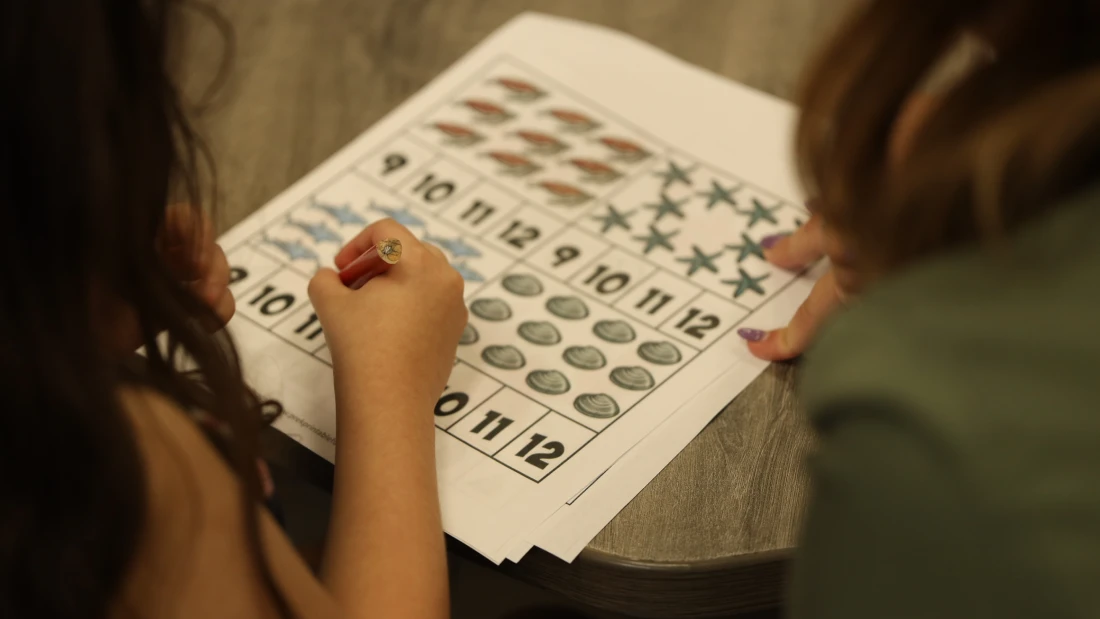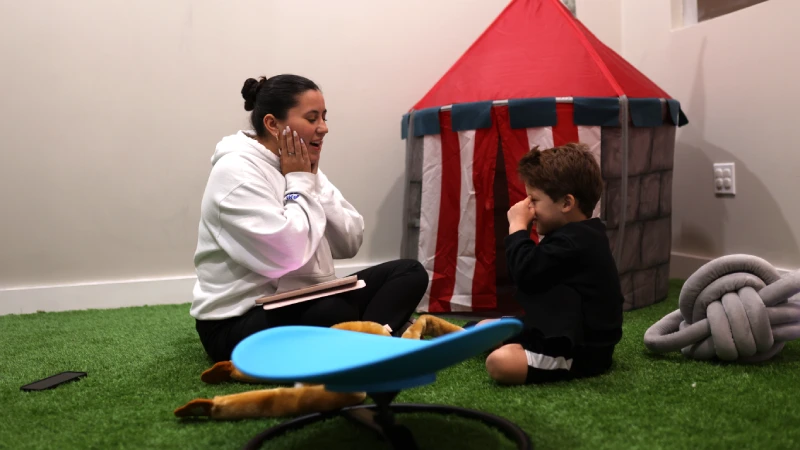Unlock Registered Behavior Technician Jobs with Koala ABA Training Programs
If you’re considering a fulfilling career in behavior therapy, registered behavior technician jobs might be your ideal pathway. These roles are in high demand across the U.S., offering opportunities to make a meaningful difference in the lives of individuals with developmental or behavioral challenges.
But how do you ensure that you’re not only qualified but also truly prepared for success in this field? Choosing the right training program is essential—and that’s where Koala ABA & Learning Centers excels. In this blog, we’ll explore what it means to be a Registered Behavior Technician (RBT) and how Koala ABA’s comprehensive KOALIFIED™ Behavior Technician Training Program can set you apart from the rest.
What are Registered Behavior Technician Jobs?
An RBT, or Registered Behavior Technician, is a paraprofessional who works directly with clients, implementing behavior treatment plans designed by a Board-Certified Behavior Analyst (BCBA). Their role is hands-on and practical, focusing on helping clients achieve behavioral goals, develop essential skills, and improve their quality of life. In essence, RBTs are the backbone of applied behavior analysis (ABA) therapy. They provide direct support, monitor progress, and work closely with families and supervisors to ensure that therapy is effective and impactful.
What Does It Take to Become an RBT?
It’s important to understand the basic requirements to become an RBT:
- Age and Education: You must be at least 18 years old and have a high school diploma or equivalent.
- Eligibility: You need to be a U.S. Citizen or Legal Resident.
- Skills: While not mandatory, being bilingual is a significant advantage in many settings.
Meeting these criteria is just the beginning. The journey to becoming an RBT involves completing a 40-hour training program, passing a competency assessment, and earning certification through the Behavior Analyst Certification Board (BACB). However, the process can be challenging without the right guidance. Overall, here are the key considerations you need to face:
- Preparing for the RBT Exam: The certification exam is comprehensive, testing candidates’ knowledge of the RBT Task List. Without thorough preparation, many candidates struggle to pass.
- Gaining Practical Experience: Understanding theory is only half the battle. Successfully applying ABA techniques in real-world scenarios requires hands-on experience and guidance from seasoned professionals.
- Maintaining Professionalism and Ethics: RBTs must navigate sensitive situations while adhering to strict ethical guidelines, maintaining client dignity, and documenting progress accurately.
What Do I Need to Know About the RBT Certification Exam?

The Behavior Analyst Certification Board (BACB) oversees the RBT certification process that unlock the path to behavior analysis technician jobs. This is an internationally recognized organization dedicated to setting standards in behavior analysis. The RBT certification exam assesses your knowledge of six primary content areas outlined in the RBT Task List (2nd Edition):
- Measurement (12 questions):
- Data collection methods (e.g., frequency, duration).
- Graphing and interpreting data.
- Assessment (12 questions):
- Conducting preference assessments.
- Assisting with individualized and functional assessments.
- Skill Acquisition (24 questions):
- Teaching methods like discrete trial teaching, chaining, and shaping.
- Reinforcement strategies and generalization techniques.
- Behavior Reduction (20 questions):
- Identifying functions of behavior.
- Implementing antecedent and consequence-based interventions.
- Documentation and Reporting (10 questions):
- Writing objective session notes.
- Reporting variables affecting clients.
- Professional Conduct and Scope of Practice (7 questions):
- Following BACB guidelines.
- Maintaining ethical standards and client dignity.
A comprehensive training program bridges the gap between theory and practice, equipping you with the tools to excel in behavior technician jobs and build a successful career. That’s why a high-quality program like Koala ABA’s KOALIFIED™ Behavior Technician Training Program is invaluable.
Why Choose Koala ABA’s KOALIFIED™ Behavior Technician Training Program?
At Koala ABA & Learning Centers, we understand that becoming an RBT is more than just meeting requirements—it’s about building a foundation for a successful and meaningful career. Our KOALIFIED™ Behavior Technician Training Program goes beyond the basics, to help you stand out in behavior technician jobs and make a meaningful impact.
What Sets Koala ABA Apart?
- Comprehensive Curriculum Aligned with the BACB Our program follows the RBT Task List (2nd Edition) and meets the 40-hour training requirement mandated by the BACB. This ensures you’re learning exactly what you need to know to succeed.
- In-Depth Coverage of Key Topics The training covers:
- Measurement techniques, such as continuous and discontinuous measurement and data graphing.
- Behavior assessment methods, including preference assessments and ABC data collection (Antecedent, Behavior, Consequence).
- Skill acquisition strategies, such as discrete trial teaching, chaining, and stimulus control transfer.
- Behavior reduction techniques like extinction and antecedent interventions.
- Professionalism, including session note documentation, supervision requirements, and maintaining client dignity.
- Practical, Hands-On Training With 300 hours of hands-on training, you’ll have the opportunity to practice essential skills in a supervised setting. This experience is invaluable for building confidence and proficiency in real-world scenarios.
- Exam Preparation Our program includes task list reviews, application-based exams, and hands-on assessments to ensure you’re fully prepared for the RBT competency assessment and certification exam.
- Expert Guidance Learn from experienced professionals who are passionate about ABA therapy and dedicated to your success.
Benefits of Training for Behavior Technician Jobs with KOALIFIED™ Program?

From our training program you can enjoy benefits such as:
- Flexible Learning: Our program accommodates busy schedules, making it accessible for all aspiring RBTs.
- Deep Understanding of ABA Principles: Gain a solid foundation in behavior analysis, from measurement techniques to intervention strategies.
- Real-World Practice: Apply your knowledge in a supportive, supervised environment.
- Expert Instruction: Learn from dedicated professionals who bring real-world experience to the classroom.
- Comprehensive Support: From initial training to exam preparation, we’re with you every step of the way.
- Certification Readiness: Complete the 40-hour course with a diploma that meets BACB requirements, preparing you to ace your competency assessment and exam.
Overall, with Koala ABA & Learning Centers, you’ll gain the skills, knowledge, and confidence to thrive in this rewarding career.
Ready to Start Your Journey?
Becoming a Registered Behavior Technician is more than just unlocking job opportunities. It is a chance to make a real difference in people’s lives. At Koala ABA, we’re committed to not just training RBTs but empowering them to excel. Whether you’re drawn to this career for its meaningful impact, job stability, or growth potential, our program is designed to help you achieve your goals.
Don’t wait to start your journey. Enroll in our KOALIFIED™ Behavior Technician Training Program and take the first step toward a fulfilling career in registered behavior technician jobs. Visit Koala ABA’s RBT Program to learn more and secure your spot today!
Frequently Asked Questions
Are Registered Behavior Technician Jobs in High Demand?
The demand for RBTs has skyrocketed in recent years. According to the Centers for Disease Control and Prevention (CDC), about 1 in 36 children in the U.S. is diagnosed with ASD. This growing prevalence highlights the critical need for skilled RBTs who can deliver evidence-based therapy to support these individuals in reaching their full potential.
What Type of Exam is the RBT Certification Exam?
The RBT certification exam is a computer-based test that evaluates your knowledge and understanding of the principles and practices outlined in the RBT Task List (2nd Edition). The exam is designed to assess your ability to apply this knowledge in real-world scenarios, making it a blend of theoretical and practical evaluation.
Where and When Can I Take the Exam?
The exam is available at Pearson VUE testing centers, which have locations worldwide. After completing the necessary training and competency assessment, you can schedule your exam through the Pearson VUE website.
How Many Questions Are on the Exam?
The RBT certification exam consists of 85 multiple-choice questions, of which 10 are unscored pilot questions used for research purposes. These unscored questions do not affect your overall score. The remaining 75 questions are scored and will determine whether you pass the exam.
What is the Passing Score?
The BACB does not publish a fixed passing score for the RBT exam, as it may vary slightly due to test difficulty and scoring methods. However, candidates are generally expected to answer around 70%–75% of the scored questions correctly to pass. Pearson VUE will notify you immediately after completing the exam whether you have passed or failed.



